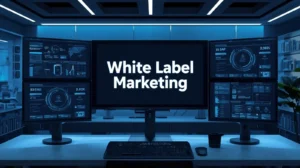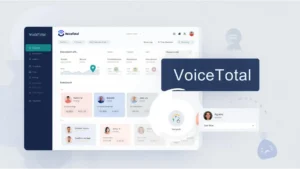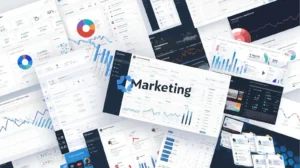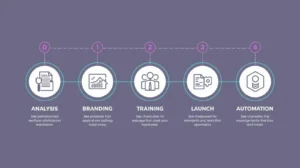Introduction: Why Agencies Need White Label Marketing Tools
White label marketing tools for agencies help businesses offer powerful digital marketing solutions—like SEO, call tracking, and automation—under their own brand without extra development costs. Let’s be honest — agencies today juggle more platforms, dashboards, and reports than ever before. From SEO analytics to call tracking and client reports, managing tools can feel like a full-time job.

Now imagine if you could rebrand powerful marketing software as your own — offering your clients world-class solutions without building everything from scratch. That’s the power of white label marketing tools for agencies.
In 2025, these tools aren’t a luxury; they’re a strategic advantage. They let your agency scale services, deliver better client results, and unlock new revenue streams — all under your own brand.
In this guide, you’ll discover:
-
What white label tools really are.
-
Why they’re essential for agency growth.
-
The 10 best tools to consider (from call tracking to social management).
-
How to integrate them seamlessly into your agency workflow.
What Are White Label Marketing Tools?
White label marketing tools are ready-made software solutions created by one company but rebranded and resold by another — usually a marketing agency. Simply put, a white label tool is like a powerful engine built by someone else that you customize to look and feel like your own product. The technology stays the same, but the experience, design, and logo all reflect your brand.
Think of it this way: instead of spending months or years building a SaaS product from scratch, agencies can partner with a white label provider. You get a pre-built, fully functional platform — such as a CRM, analytics dashboard, call tracking tool, or social media scheduler — that you can rebrand and offer directly to clients as part of your own digital service suite.
This model empowers marketing agencies to grow smarter, faster, and more profitably.
HubSpot – The Power of Marketing Automation for SMBs
Why White Label Tools Matter for Agencies
-
Instant Service Expansion:
Agencies can add new offerings — like SEO reports, call tracking, lead management, or reputation monitoring — without hiring developers or creating software in-house. -
Brand Consistency and Trust:
Every client interaction happens under your logo and color scheme. Whether they log in to view analytics or check campaign results, they see your brand, not a third-party vendor. This builds loyalty and long-term credibility. -
Recurring Revenue Opportunities:
Many white label platforms allow you to charge clients on a subscription basis. That means steady monthly income for your agency, even when your workload fluctuates. -
Faster Client Onboarding:
Since these tools are ready to use, your agency can launch campaigns and onboard clients quickly. No coding. No delays. Just plug, brand, and start scaling. -
Data Transparency and Client Retention:
When clients can see clear, measurable results through your branded software, they’re more likely to trust your process and renew contracts.

Real-World Example
Imagine your agency uses VoiceTotal, a white label call tracking platform. You can give clients access to a branded dashboard showing detailed call analytics, lead sources, and performance reports — all featuring your logo and brand colors.
To your clients, it feels like your agency built the technology. To you, it’s a cost-effective way to deliver enterprise-grade services without massive investment.
Learn more about agency-friendly automation tools at VoiceTotal Blog.
Why White Label Marketing Tools Matter in 2025
The marketing landscape in 2025 is more competitive, data-driven, and brand-sensitive than ever. Clients no longer settle for vague reports or hidden metrics — they expect full transparency, customized insights, and instant access to results. That’s exactly where white label marketing tools become indispensable for modern agencies.
White labeling allows agencies to use powerful third-party software and rebrand it as their own, giving clients a seamless, professional experience under one trusted name. Instead of juggling multiple platforms or exposing third-party vendors, agencies can now deliver end-to-end digital solutions — powered by automation but personalized with their own identity.
1. Rising Client Expectations
Today’s clients demand more than results — they want real-time visibility. They expect branded dashboards that reflect their campaign performance, audience insights, and ROI in one place. A white label tool lets agencies offer exactly that: branded analytics dashboards, campaign trackers, and call reports under their own name.
This transparency not only builds trust but also positions your agency as a data-driven partner rather than just a service provider. It’s about turning information into confidence — every chart, every number, all wearing your agency’s colors.
2. Competitive Differentiation
With over 30,000+ active marketing agencies worldwide, differentiation is no longer optional — it’s survival. White labeling gives your agency a competitive edge by allowing you to offer enterprise-grade experiences with your own branding.
Clients perceive your agency as tech-savvy, modern, and capable of delivering big-brand quality — even if you’re a small or mid-sized team. This kind of branding power can transform how prospects view your credibility and capability in a crowded market.
3. Efficiency & Scalability
In 2025, efficiency equals growth. Building proprietary software from scratch is time-consuming and expensive. But white label solutions eliminate that barrier. Instead of spending months developing tools, agencies can focus on what truly matters — strategy, creativity, and scaling client results.
These tools allow seamless onboarding, automation, and scalability — letting you manage more clients without compromising quality or consistency.
4. Revenue Expansion
White labeling isn’t just about branding — it’s about building new income streams. Agencies can package these tools as premium add-ons or subscription-based products.
Imagine offering clients access to reporting dashboards, analytics tools, or call tracking portals branded with your agency’s name — all generating recurring monthly revenue.
Explore how VoiceTotal’s Call Tracking Platform empowers agencies to measure ROI through branded dashboards.
Key Benefits of White Label Tools for Agencies
In today’s competitive digital landscape, white label marketing tools have become a game changer for agencies that want to scale efficiently, retain clients, and stand out in a crowded market. These tools allow you to use ready-made software — from call tracking and analytics to CRM and automation — and rebrand it as your own. Instead of spending years building technology, your agency can focus on what really drives growth: strategy, creativity, and performance.
Here’s a closer look at the five key benefits of white label tools and why they’re essential for agencies in 2025 and beyond.
1. Stronger Client Retention
Client retention is the backbone of every successful agency. When clients log into a branded platform that carries your logo, color scheme, and interface, they subconsciously associate success with your brand.
White label platforms integrate directly into a client’s daily workflow — whether it’s checking campaign analytics, tracking calls, or reviewing reports. Over time, this habit builds dependency and loyalty. Clients become accustomed to your system, making it harder for them to switch providers.
For example, a digital agency using a white-labeled call tracking solution like VoiceTotal can give clients access to a dashboard under their brand. Clients see your agency’s name every time they track leads or measure conversions. That kind of brand consistency builds trust — and keeps them coming back.
2. Faster Service Delivery
Time is money — especially in the agency world. With white label tools, you skip the long process of software development, testing, and deployment. You can set up client dashboards within hours instead of weeks or months.
This agility allows you to serve more clients efficiently and meet their needs instantly. Instead of explaining delays or technical limitations, you can deliver immediate results. It also empowers your team to stay focused on creative strategy rather than backend technicalities.
Faster delivery = happier clients + stronger reputation.

3. Enhanced Professional Image
Presentation matters. When you deliver client reports, campaign insights, and ROI dashboards using a platform branded entirely as your own, it elevates your agency’s credibility.
Clients perceive your agency as a full-service solution provider — not just a middleman using third-party software. The perception of having proprietary technology makes your agency appear larger, more capable, and future-ready.
This branding advantage can make a huge difference when pitching to new clients or renewing contracts. A professional image creates confidence — and confidence converts leads into long-term partnerships.
4. Recurring Revenue Model
One of the biggest advantages of white labeling is the opportunity to create recurring income. By packaging white label tools as part of your service, you can charge clients monthly subscription fees for access.
For example:
-
Basic Plan: Dashboard access & basic analytics
-
Pro Plan: Advanced call tracking + custom branding
-
Enterprise Plan: Full analytics suite + AI insights
This structure turns every client into a revenue stream — even when you’re not onboarding new ones. It’s a sustainable growth model that ensures predictable income month after month.
5. Data-Driven Performance
White label tools often include powerful analytics and tracking features that help you measure performance in real time. From lead sources and call conversions to engagement rates and ROI, these insights allow your team to make smarter decisions.
The result? More efficient campaigns, happier clients, and a reputation for measurable success. Data-driven marketing isn’t just a trend — it’s the new standard. And with branded dashboards, you can demonstrate that your agency is always one step ahead.
White label tools aren’t just about branding — they’re about building authority, efficiency, and long-term profitability. In 2025, agencies that adopt white label solutions like VoiceTotal’s Call Tracking Platform will be the ones leading the industry with scalability and trust.
Top 10 White Label Marketing Tools for Agencies in 2025
In 2025, digital agencies are scaling faster than ever — and white label tools are the secret behind that growth.
Instead of spending years developing in-house software, smart agencies now rebrand existing SaaS platforms to deliver analytics, automation, and reporting under their own brand name.
These tools help agencies boost client trust, streamline operations, and unlock recurring revenue — all while maintaining a polished, professional identity.
Below is a curated list of 10 must-have white label tools that will help your agency scale efficiently, serve more clients, and stand out in the competitive digital marketing landscape.
1. VoiceTotal (Best for Call Tracking & ROI Attribution)
Use Case: Tracks inbound calls, sources, keywords, and campaign conversions — everything your clients need to measure marketing ROI.
Why Agencies Love It:
-
100% white-label dashboard — showcase your brand, not the vendor’s.
-
AI-powered call analytics and sentiment detection.
-
Detailed reporting that helps clients see what’s driving results.
-
Easy multi-client management from a single interface.
Best For: Agencies running ad campaigns (Google Ads, Meta, LinkedIn) and needing accurate call-based attribution.
Pro Tip: Use VoiceTotal’s call data to connect ad spend directly to real sales — clients love transparent ROI tracking.
Explore VoiceTotal Call Tracking → https://voicetotal.com/
2. DashThis (Reporting Automation)
Purpose: Simplify your reporting process by creating beautiful, branded client dashboards.
Key Features:
-
Fully customizable templates with drag-and-drop widgets.
-
White-label reports with your logo and brand colors.
-
One-click integration with Google Analytics, Facebook Ads, and more.
-
Automated email delivery of PDF reports.
Why It Matters:
DashThis lets you automate 90% of your reporting workflow, freeing your team to focus on strategy and creativity.
3. Sendible (Social Media Management)
What It Does: Manage multiple client social media accounts — all from one platform.
Top Features:
-
White-label dashboard for clients.
-
Automated scheduling and content approval workflows.
-
Advanced analytics and post-performance tracking.
-
Multi-user access with customizable roles.
Why Agencies Choose It:
Sendible saves time while giving clients access to branded dashboards that highlight your agency’s professionalism.
4. HighLevel (CRM + Marketing Automation)
Overview: A true all-in-one platform for agencies offering CRM, funnel building, and marketing automation.
Why It’s a Game Changer:
-
Built specifically for agencies (not freelancers).
-
White-label mobile app available.
-
Full rebranding of dashboards, domains, and notifications.
-
SMS, email, and pipeline management under one roof.
Pro Tip: Offer clients recurring CRM access under your agency’s brand — instant new revenue stream.
5. SEMrush for Agencies
Use Case: SEO, PPC, content marketing, and competitive analysis.
White Label Features:
-
Custom client reports through “My Reports.”
-
Agency Growth Kit — lets you manage leads, track performance, and deliver white-label reports.
-
Integration with client portals for direct access to branded analytics.
Why It’s Popular:
Agencies can provide data-rich SEO insights with the polish of enterprise-grade dashboards.

6. ReportGarden
Best For: Paid media reporting and performance tracking.
What It Offers:
-
Create branded client dashboards for Google Ads, Meta Ads, and Bing.
-
Automate report delivery.
-
Manage multiple campaigns from a single, agency-branded interface.
Why It’s Great:
ReportGarden reduces manual work and gives clients access to transparent ad reporting, helping you build trust.
7. ActiveCampaign
Use: White-label email automation, CRM, and customer journey mapping.
Standout Features:
-
Rebrandable dashboard and email builder.
-
Smart segmentation and automation triggers.
-
Visual workflow designer for client journeys.
Agency Benefit:
You can resell email automation as part of your own marketing suite — no need to mention the vendor.
8. WhatConverts
Purpose: Lead tracking across calls, forms, and chat.
What Makes It Stand Out:
-
Detailed source tracking and lead scoring.
-
White-label dashboard for agencies and clients.
-
Connects marketing spend directly to lead quality.
Ideal For: Agencies running multi-channel campaigns who want clear attribution visibility for every conversion.
9. BrightLocal
Use: Local SEO tracking, citation audits, and Google Business Profile management.
Top Features:
-
Agency-branded reports for local clients.
-
Track rankings, citations, and reviews.
-
Manage multiple local businesses under one account.
Agency Value:
Local businesses love branded visibility reports — BrightLocal makes your agency the hero behind local search growth.
10. SocialPilot
Purpose: Social scheduling and performance analytics for agencies on a budget.
Why It’s Loved:
-
Affordable white-label dashboards.
-
Team collaboration tools.
-
Bulk scheduling and client management features.
Best For: Small-to-mid-sized agencies looking to deliver consistent social content with minimal cost.
Forbes – Top Marketing Trends in 2025
Final Thoughts: Choose Tools That Build Your Brand
In 2025, agencies that scale are those that own their client experience.
White-label tools like VoiceTotal, Sendible, and HighLevel not only save you time but also turn your agency into a brand clients trust.
When clients log in and see your logo — not another company’s — that’s when you start building lasting credibility.
Start small, integrate smartly, and let white label software power your growth in 2025 and beyond.
How to Implement White Label Marketing Tools (Step-by-Step Framework)
Step 1: Identify Client Pain Points
Ask: Where are clients lacking visibility or automation? Start with high-impact areas like reporting or call analytics.
Step 2: Choose the Right Tools
Pick tools that integrate seamlessly — CRM, analytics, call tracking, and social management.
Step 3: Customize Branding
Add your logo, color palette, and subdomain to make each client portal feel 100% yours.
Step 4: Train Your Team
Before onboarding clients, train your staff on workflows and features.

Step 5: Launch Softly
Start with a small client segment, gather feedback, then scale.
Step 6: Measure Performance
Track adoption rate, report usage, and recurring revenue growth.
Step 7: Scale & Automate
Once proven, package tools into tiered service plans.
Real-World Case Study: Agency Growth Through White Labeling
Case:
A digital agency in Austin partnered with VoiceTotal and BrightLocal to create a branded analytics suite called Insight360.
Results:
-
22% reduction in churn within three months.
-
Added $8,000/month in recurring SaaS-style revenue.
-
Boosted client satisfaction scores by 40%.
Lesson: You don’t need to build software — you just need to white-label the right one.
Common Mistakes Agencies Make
-
Ignoring Client Onboarding: Clients must know how to use dashboards — create quick tutorials.
-
Overloading with Tools: Choose 2-3 strong tools first; avoid overwhelming clients.
-
Neglecting Reporting: Without consistent updates, clients lose confidence.
-
Skipping Integrations: Ensure tools connect to CRMs and analytics for unified reporting.
Future Trends in White Label Marketing (2025-2030)
-
AI-Driven Client Insights: Predictive reporting that identifies at-risk clients before they churn.
-
Voice & Call Data Integration: Platforms like VoiceTotal merging voice analytics with ad tracking.
-
Full Automation: From lead capture to reporting, everything rebranded under your agency.
-
Outcome-Based Pricing: Agencies charging per conversion, supported by transparent white-label data.

Forbes on the Future of Marketing Automation highlights that automation and personalization will dominate agency tech stacks.
FAQs
Q1: What are white label marketing tools for agencies?
A: These are rebrandable software solutions agencies can offer under their own brand — enhancing value and scalability.
Q2: What’s the best white label call tracking tool?
A: VoiceTotal offers AI-powered call analytics, ROI tracking, and agency-ready branding.
Q3: How can I profit from white label tools?
A: By charging clients for software access, monthly reports, or analytics dashboards.
Q4: Are white label tools safe for clients?
A: Yes — reputable providers ensure data security and transparency.
Q5: Can small agencies benefit from them?
A: Absolutely. They allow small agencies to compete with enterprise-level offerings instantly.
Conclusion: The Smarter Way to Scale Your Agency
White label marketing tools are no longer optional — they’re the new foundation of scalable agency growth.
By choosing solutions like VoiceTotal, you deliver professional, measurable, and brand-aligned client experiences — without reinventing the wheel.
Start small, stay consistent, and within months, you’ll not just serve clients — you’ll own your software stack.
Ready to elevate your agency?
Start your journey with VoiceTotal →
